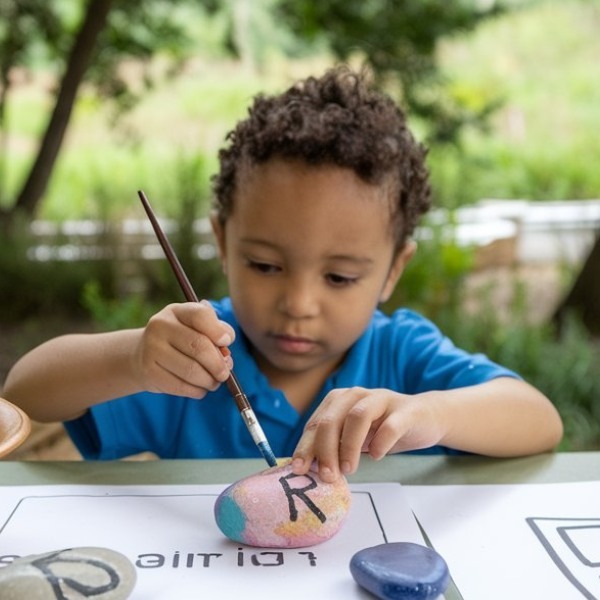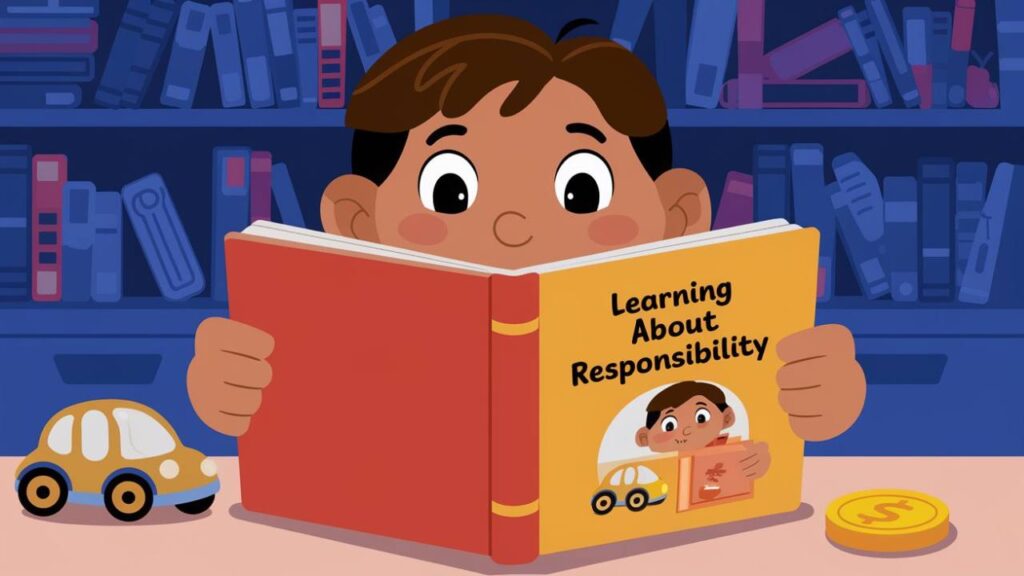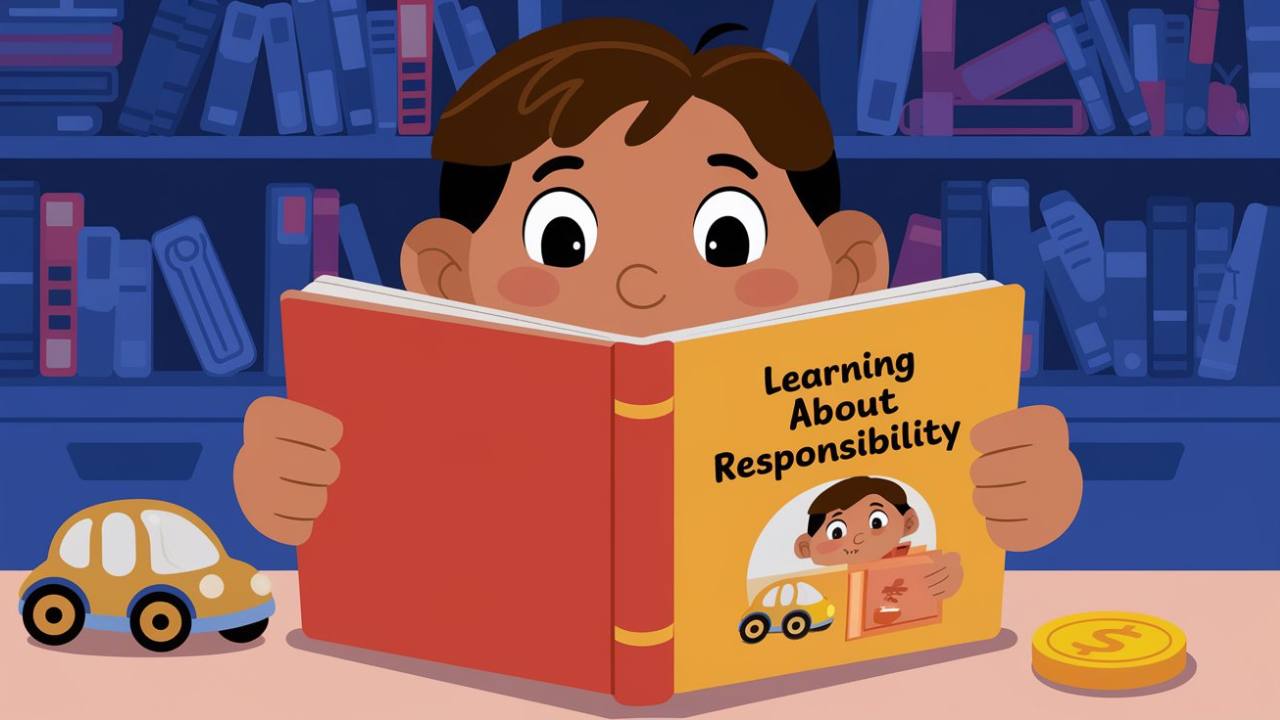Raising responsible children is a fundamental aspect of parenting. But why is it important for kids to learn responsibility? Teaching children responsibility early in life equips them with skills and values that contribute to their personal and social growth. In this blog, we will explore seven compelling reasons why fostering responsibility in kids is essential, along with practical tips and examples to help parents nurture responsible behavior effectively.
Why Is It Important for Kids to Learn Responsibility?

1. Develops Accountability
Teaching responsibility ensures children understand the consequences of their actions. When kids learn to own up to their mistakes and accomplishments, they become more accountable. For example, if a child forgets to complete their homework, they realize the impact it has on their grades.
This accountability builds character and fosters trust with peers and adults. Accountability is a cornerstone in raising responsible kids and helps them navigate life with integrity.
2. Builds Independence
Responsibility teaches kids to rely on themselves for completing tasks and making decisions. Assigning small household chores like organizing their toys or preparing their school bag encourages self-reliance. Over time, they learn to manage their time, resources, and actions without constant supervision. Independence is vital for children to grow into confident and capable adults who can handle challenges on their own.
3. Encourages Problem-Solving Skills
When kids take responsibility, they naturally encounter situations that require problem-solving. For instance, if a child is responsible for packing their lunch and forgets an item, they learn to adapt by finding alternatives or asking for help. Responsibility fosters critical thinking and equips children with the ability to approach problems with a solution-oriented mindset, which is a valuable skill for life.
4. Promotes Empathy and Teamwork
Understanding their responsibilities helps children recognize how their actions impact others. For example, being responsible for feeding a pet teaches empathy and teamwork within a family. Empathy is a critical social skill that strengthens relationships and builds compassionate individuals. When kids work together on shared responsibilities, they learn to value cooperation and mutual support.
5. Strengthens Self-Esteem
Accomplishing responsibilities, whether small or big, gives children a sense of achievement. This boosts their self-esteem and motivates them to take on bigger challenges. For instance, when a child successfully completes their school project on their own, they feel proud of their efforts. By acknowledging their accomplishments and providing positive reinforcement, parents can nurture a strong sense of self-worth in their children.
6. Prepares Kids for the Future
Responsibility is a life skill that prepares kids for adulthood. Tasks such as managing allowances, completing assignments on time, or helping with household chores teach practical lessons. These early experiences help children transition into responsible adults who can manage careers, relationships, and other life aspects effectively. Preparing kids with these skills ensures they are equipped to face life’s challenges with confidence.
7. Teaches the Value of Discipline
Responsibility instills discipline by encouraging kids to stick to routines and fulfill commitments. For example, maintaining a bedtime schedule or completing school projects on time helps develop discipline. Discipline is crucial for success in all areas of life, as it lays the foundation for a structured and productive lifestyle.

Additional Benefits of Teaching Responsibility
8. Fosters Resilience
Taking responsibility can sometimes be challenging, but it helps children build resilience. Facing setbacks, learning from mistakes, and persevering teaches kids to bounce back stronger. Resilience is a vital trait that helps children adapt to life’s ups and downs with confidence and courage.
9. Enhances Time Management Skills
Responsibility often involves managing time effectively. Whether it’s balancing homework with playtime or meeting deadlines, kids learn to prioritize and allocate their time wisely. These skills are essential for managing tasks efficiently as they grow older and take on more complex responsibilities.
10. Creates a Sense of Purpose
When children take on responsibilities, they feel a sense of purpose and belonging. Being a contributing member of the family or school community gives them a role to play, which enhances their emotional well-being. This sense of purpose motivates them to strive for excellence and be more proactive in their daily lives.
11. Encourages Goal-Setting
Taking responsibility for specific tasks encourages kids to set and achieve goals. For instance, saving pocket money for a desired toy teaches them how to plan and work towards a target. Goal-setting is an essential life skill that fosters motivation and determination.
12. Builds Trust with Others
Being responsible demonstrates reliability, which helps build trust with family members, teachers, and peers. When kids consistently fulfill their commitments, others are more likely to depend on them. This trust enhances their relationships and strengthens their social bonds.
Practical Tips for Teaching Responsibility
- Start Small: Assign age-appropriate tasks like picking up toys or feeding a pet.
- Lead by Example: Demonstrate responsibility in your actions to inspire your kids.
- Be Patient: Allow kids to make mistakes and learn from them without fear of criticism.
- Provide Consistent Support: Guide them through responsibilities while allowing them to take ownership.
- Celebrate Success: Recognize and appreciate their efforts to encourage responsible behavior.
Age-Appropriate Responsibilities for Kids
| Age Group | Suggested Responsibilities |
|---|---|
| 3-5 years | Picking up toys, helping with pet care |
| 6-8 years | Packing school bags, setting the table |
| 9-12 years | Doing laundry, managing pocket money |
| 13-15 years | Babysitting siblings, assisting in cooking |
Related Article: 7 Steps to Help Your Child Take Responsibility for Their Actions
Conclusion
Teaching kids responsibility early in life is one of the greatest gifts parents can provide. It answers the essential question, why is it important for kids to learn responsibility? Responsibility shapes children into accountable, independent, and empathetic individuals prepared for life’s challenges. By incorporating these lessons into daily routines, parents can nurture responsible and well-rounded individuals who will thrive in the future.
FAQ’s
Why is it important for kids to learn responsibility?
Learning responsibility helps kids develop accountability, independence, and essential life skills that prepare them for adulthood.
How can parents teach responsibility to children?
Parents can teach responsibility by assigning age-appropriate tasks, leading by example, and providing consistent support.
Why is discipline linked to responsibility?
Discipline helps kids stick to routines and fulfill commitments, which are key aspects of being responsible.
What are some age-appropriate responsibilities for young kids?
Young kids can take on tasks like picking up toys, helping with pet care, and packing their school bags.
How does responsibility improve self-esteem in children?
Accomplishing tasks and meeting responsibilities boosts a child’s confidence and sense of achievement, leading to higher self-esteem.




